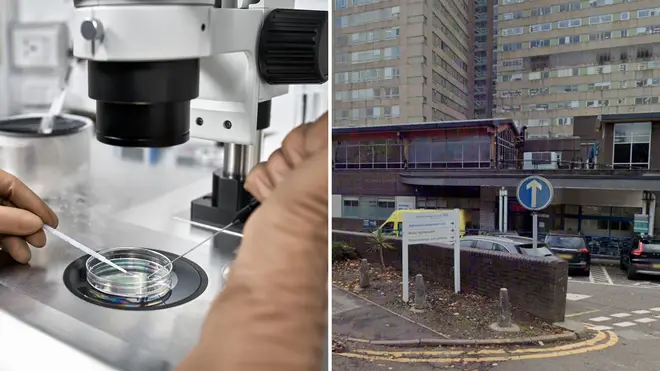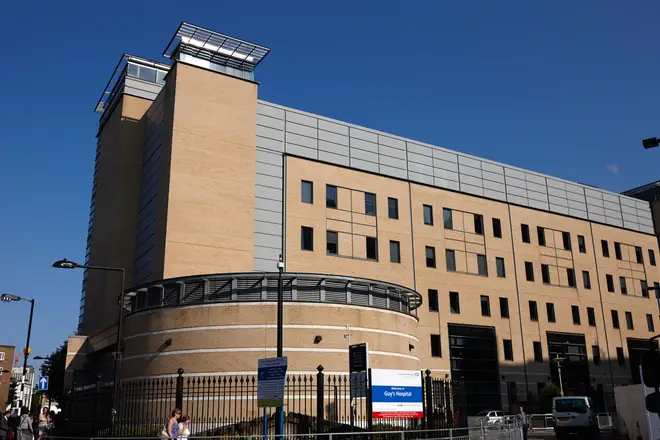
Oli Dugmore 4am - 7am
14 February 2024, 22:54

A second NHS fertility centre has been linked to an egg-freezing 'fault' that could see dozens of women robbed of the chance to have children.
Jessop Fertility, which is based at Sheffield Teaching Hospitals NHS Foundation Trust, may have used a faulty egg and embryo-freezing solution, the fertility regulator said.
The Human Fertilisation and Embryology Authority (HFEA) said the clinic "undertook a thorough investigation when they first became aware of the issue and contacted and supported any patient affected".
It comes after Guy's Hospital in London said it may have also inadvertently used bottles of a faulty freezing solution that it did not know was defective at the time.
The hospital apologised for a delay in contacting patients affected at its assisted conception unit.
Dr Jennifer Hill, medical director at Sheffield Teaching Hospitals NHS Foundation Trust, said: "We began a thorough patient review as soon as the product recall notice was issued.
"We have robust tracing processes in our laboratories and so we were able to identify that there were 29 people who had eggs or embryos frozen in the period (August 2022) when we used the particular product batch.
"We can confirm that 28 of those did not have the faulty fluid used to freeze their eggs or embryos. The remaining person was contacted at the time and did not require further actions to be taken."

Guy's Hospital contacted 136 patients whose chances of having children may have been compromised due to a faulty liquid used to freeze eggs and embryos during fertility treatment.
In February 2023, US firm Cooper Surgical issued an urgent safety notice about its freezing solution, saying that one "lot" of the product "may contain mislabelled vials" which "may impact the viability" of the eggs or embryos.
A spokesman for Guy's and St Thomas' NHS Foundation Trust said that its assisted conception unit (ACU) may have used the product a few months before the warning was issued - in September and October 2022.
The spokesman added: "While we did not know about the potential issue at the time eggs or embryos were frozen, this manufacturing issue may adversely impact the chance of frozen egg or embryo survival during thawing.
"We have contacted all of those affected and apologised for the delay in doing so and any distress this may have caused.
"We are supporting those who may have been impacted, including through our counselling service, and would urge anyone with concerns to speak to us directly via the dedicated phoneline we have set up."
The fertility regulator confirmed that it is investigating the incident.
Rachel Cutting, director of compliance and information at the HFEA, said: "The HFEA can confirm that this issue is limited to two clinics in the UK: Guys' and St Thomas' Assisted Conception Unit, London and Jessop Fertility, Sheffield.
"Our ongoing investigation only relates to Guys' as we are satisfied that Jessop's undertook a thorough investigation when they first became aware of the issue and contacted and supported any patient affected.
"The company supplying the product directly to clinics will know exactly where it's gone through their traceability processes. The company is also obliged to report any problems to the MHRA.
"Any patients likely to have been affected will have been notified by their clinic. We hope this provides reassurance to anyone concerned."